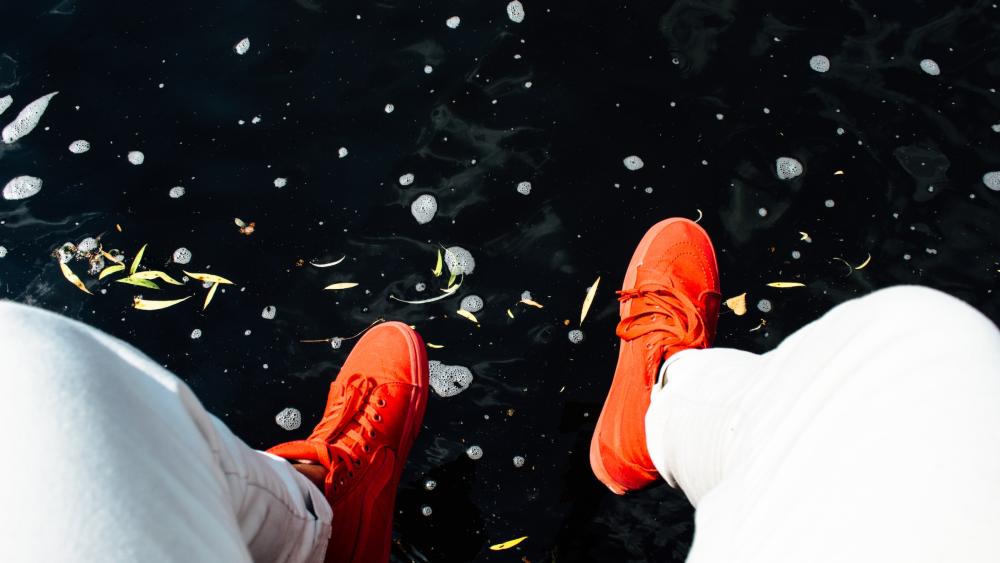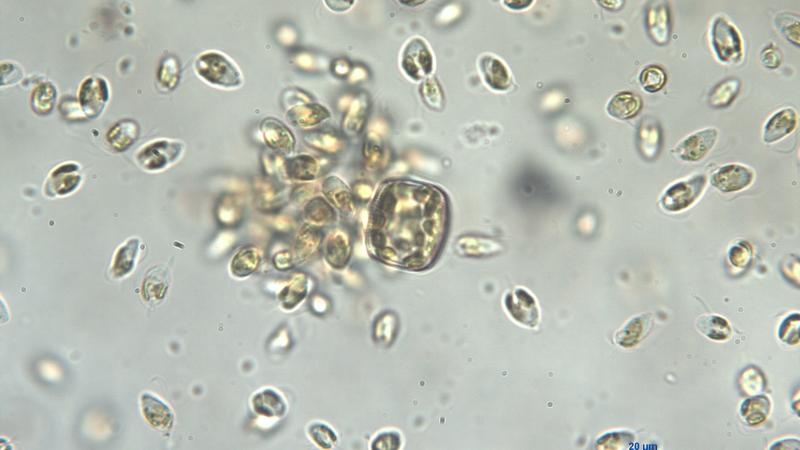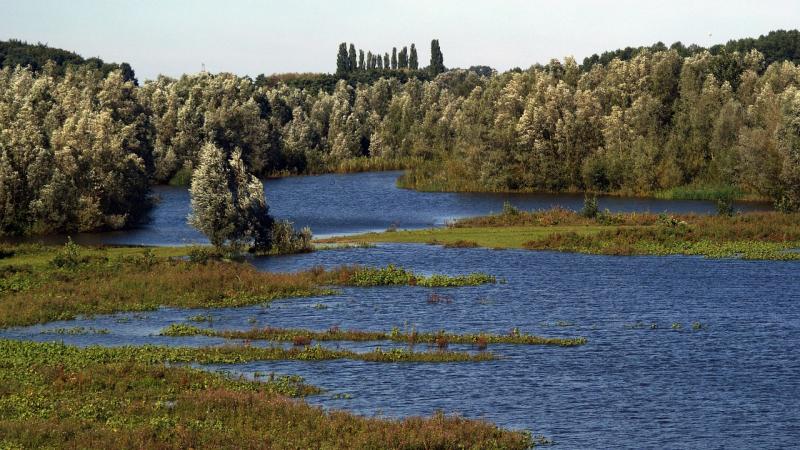
© Shawn McKay on Unsplash
Ponds in cities provide many different ecosystem services, such as mitigating heat island effects and providing flood control, while simultaneously enhancing human well-being and promoting biodiversity. Ponds are therefore increasingly being used in cities as nature-based solutions to reduce climate-related risks.
Another strength of these small standing water bodies is that they are often home to very unique ecological communities, particularly smaller aquatic organisms such as water fleas that have evolved to cope with adverse conditions such as chemical pollution or extreme weather events. Does the adaptation of these organisms make urban ponds more resilient to future global change? Will this make our cities healthier and more biodiverse? Can researchers from different disciplines together with stakeholders and practitioners co-create knowledge on urban ponds that can foster sustainable urban development? These are some of the questions addressed by the new POUNDER project.
Does chemical pollution trigger evolutionary processes in small urban water bodies?
IGB scientists Stephanie Spahr and Lynn Govaert set out to investigate how chemical pollution affects eco-evolutionary processes that may enhance the resilience of aquatic ecosystems. "We deliberately chose urban ponds because urbanisation is a very relevant aspect of global change. In the future, people and ecosystems in cities will be increasingly exposed to multiple stressors such as heat waves, intense rainfall, and pollution," explained environmental chemist Stephanie Spahr.

© David Ausserhofer/IGB
"Urbanisation is a very relevant aspect of global change. In the future, people and ecosystems in cities will be increasingly exposed to multiple stressors such as heat waves, intense rainfall, and pollution."
Dr Stephanie Spahr
Of particular concern are organic contaminants such as pharmaceuticals, pesticides, household and industrial chemicals, or traffic-related pollutants that enter water bodies through insufficiently treated wastewater, stormwater runoff, combined sewer overflows, or spills. "Many of these synthetic chemicals remain in the water cycle and pose a risk to aquatic organisms," said Spahr. The chemical mixtures present in urban ponds are largely unknown and likely depend on the land use, the water sources, and seasonal fluctuations.
Can adaptation to chemical pollution strengthen the resilience of the whole ecosystem?
The urban cocktail of chemicals can drastically change the ecological species composition, as some organisms are more sensitive to chemical stress than others. "Importantly, populations of microorganisms and zooplankton can also evolutionary adapt and develop tolerances, i.e., they adjust their characteristics to deal with the local chemical pollution," explained ecologist and mathematician Lynn Govaert, adding: "These ecological and evolutionary processes can then interact dynamically, which can affect the functioning and ecosystem services of water bodies, such as water quality and self-purification capacity."

© David Ausserhofer/IGB
"Populations of microorganisms and zooplankton can evolutionary adapt and develop tolerances, i.e., they adjust their characteristics to deal with the local chemical pollution."
Dr Lynn Govaert
If key functional species – such as water fleas – are able to adapt quickly in evolutionary terms, this could strengthen the resilience of urban ecosystems and buffer disturbances. "We already know that ponds are important nature-based solutions for climate-resilient cities, for example by retaining water or providing a cooling effect. But how exactly evolutionary and ecological responses to chemical pollution influence each other in these systems is a relatively new field of research," said the IGB group leader.
A total of seven IGB research groups are involved in the project. The Academy for Territorial Development in the Leibniz Association (ARL), the Leibniz Institute for Agricultural Engineering and Bioeconomy (ATB), the Leibniz Institute for Zoo and Wildlife Research (IZW), and the University of Iowa are also collaborating.
Other innovative research approaches: Microplastics and cyanobacteria
IGB researchers have no shortage of good ideas and curiosity: the other project proposals were also well received internally. IGB scientist Justyna Wolinska and her team want to investigate how increasing water pollution with microplastics could affect not only individual target species, but also the functioning and stability of entire ecosystems. And an IGB team led by Sabine Hilt wants to carry out a global field study to find out how widespread plant-associated cyanobacteria are, what risks they pose to human health and what countermeasures are appropriate. Both teams received seed money to further develop their project outlines and to carry out initial investigations.
And something else was true of all the projects that made the internal shortlist: they were submitted by female scientists. We are delighted to see so much (women's) drive for research, which also reflects the growing number of female group leaders at the Institute!
~
Interested in joining the new POUNDER project? We are looking for three PhD students and one postdoc to start in March 2024 or soon thereafter! Click here for the current vacancies >







